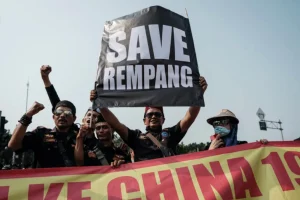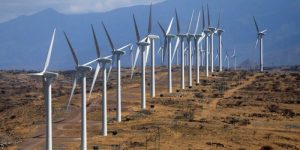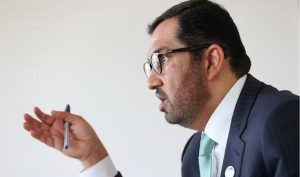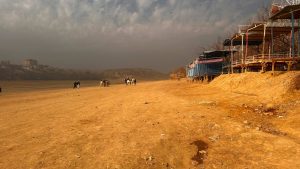
Nigeria’s new blue economy ministry could harness marine resources – moving the focus away from oil
Nigeria’s President Bola Ahmed Tinubu announced a new ministerial portfolio in August: Marine and Blue Economy.

Nigeria’s President Bola Ahmed Tinubu announced a new ministerial portfolio in August: Marine and Blue Economy.

I first visited Rempang island in Summer 2022. Greeting me were lush fields lined with coconut and banana trees, picture-book fishing villages with houses jutting into the water on stilts, and boats carrying people between the dozens of islands that dot the Riau archipelago in western Indonesia. I had made

Anderson Kehbila, Stockholm Environment Institute Kenya’s ambition is to reduce carbon emissions by one-third by 2030, relative to the business-as-usual scenario of 143 metric tonnes of carbon dioxide equivalent. It also seeks to reduce carbon emissions to as close to zero as possible by 2050. How and whether these goals

Ibrahim Ozdemir, Clark University In December 2023, negotiators from countries worldwide will meet in the United Arab Emirates for the next round of international climate talks. While the talks are considered essential to securing global agreements needed to avoid dangerous climate change, confidence in the summit, known as COP28, is

This past December, a fleet of colorful swan-shaped boats lined the muddy banks of Qargha Lake, a reservoir on the outskirts of Kabul, Afghanistan. The boats’ owner, 50-year-old Shah Maqsoud Habibi, said his business has vanished, along with much of the lake, a once popular weekend destination for war weary

Matthew Cherisch, University of the Witwatersrand As Africa gets hotter, mothers and babies are most at risk. Why is this and what can be done about it? Matthew Chersich, a specialist in climate change and maternal health, explains the reasons to health editor Nadine Dreyer. What makes pregnant women particularly vulnerable

Abstract Dependency theory exposed the silencing of the exploitative historical relation between core and periphery to explain the underdevelopment of countries in Latin America. The attrition of US hegemony after the cold war and subsequent developments of new economic models masquerading as inclusive created theoretical ambiguity among the proponents of
